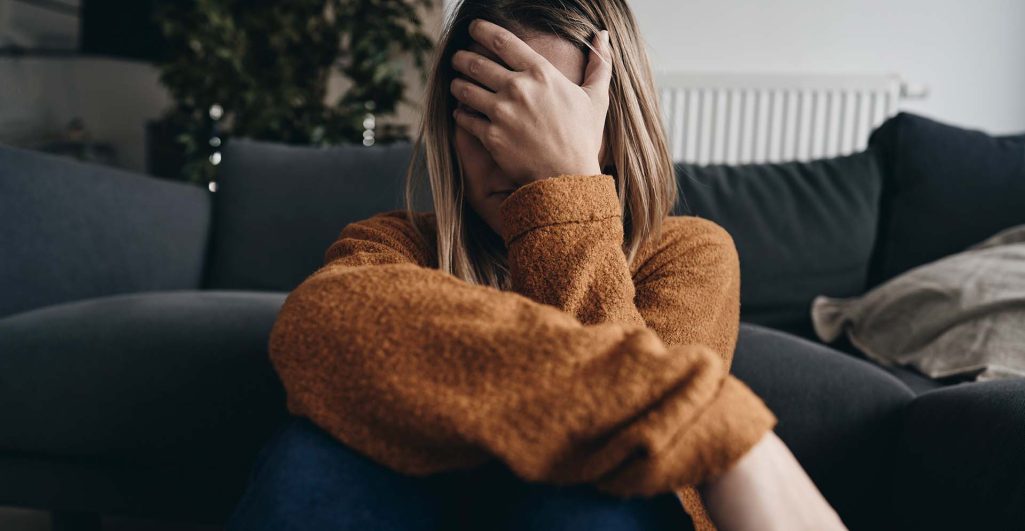For many people, diazepam use starts in a GP’s office, with a prescription for sleepless nights or overwhelming anxiety. At first, it does what it’s meant to: the tension eases, the mind slows, and for the first time in a while, there’s relief. But gradually, the same dose doesn’t feel enough. You might notice yourself reaching for tablets sooner than planned, feeling unsettled if you skip one, or worrying about how long your prescription will last. What was once a source of comfort can begin to feel like something you can’t do without.
If you find yourself turning to diazepam night after night to drift off, or feel uneasy without taking it, you’re not alone. In Scotland, benzodiazepines like Valium were linked to 601 drug-related deaths in 2022. Dependency often creeps in with good intentions and medical oversight, yet leaves people trapped in a loop of withdrawal and emotional reliance.
This page explores how benzodiazepine use disorder develops, why it’s often misunderstood, and expert insight to help you take the first step toward change.
What are benzodiazepines?

Benzodiazepines are a class of sedative medications that slow down activity in the brain and central nervous system. Diazepam (a benzodiazepine commonly known under the brand name “Valium”) is one of the most prescribed forms, used to relieve anxiety, ease muscle spasms, or help with sleep.
While effective in the short term, these medications are not designed for long-term use. Prolonged use changes the brain’s chemistry, creating tolerance (needing more of the drug to get the same effect) and dependence (feeling unable to function without it). This is known as addiction to diazepam.
Recognising when diazepam use becomes dangerous
Doctors usually don’t recommend taking benzodiazepines for more than four weeks. This is because the body adapts quickly, and over time, the same dose may not feel as effective. When that happens, it’s easy to find yourself needing more than you expected, and dependence can creep in without you realising.
If you’ve noticed that your tablets don’t work as well as they once did, or you feel uneasy without them, it could be a sign that your body is becoming reliant on them. This doesn’t mean you’ve done anything wrong, as it’s a typical response to these medicines. However, it does mean that it’s worth consulting a doctor or a specialist service for advice. Reaching out early can make all the difference and stop things from getting harder to manage down the line.
Why are benzos addictive?
Addiction to benzos like diazepam happens because of how these drugs act on the brain’s GABA receptors (the chemical system responsible for calm and relaxation). They amplify this stimulation, producing a powerful sense of relief.
If taken often, the brain begins to rely on the drug to feel “normal”. Stopping suddenly can trigger severe withdrawal symptoms, including:
- Intense anxiety or panic attacks
- Tremors or muscle spasms
- Insomnia and restlessness
- In severe cases, seizures
While many people begin by taking diazepam exactly as prescribed, over time it’s common to feel the need for higher doses or to seek extra prescriptions. Some find themselves pressuring their GP for refills, visiting multiple doctors, or even turning to unmonitored online or street sources. These patterns are warning signs that prescription use has shifted into dependency.
How to recognise benzo addiction
It can be difficult to know when prescribed medication has crossed the line into benzodiazepine use disorder. Some key signs to look out for include the following:
- Increasing your dose without medical advice or running out of medication early
- Feeling anxious, restless, or unable to sleep without the drug
- Struggling to focus at work or school
- Hiding or downplaying your use to friends or family
- Losing interest in hobbies or activities you once enjoyed
- Mood changes, such as irritability or depression
- Physical withdrawal symptoms (sweating, shaking, nausea) when you cut back your dose
If you recognise several of these, consider whether your relationship with benzos has become unhealthy.
How diazepam addiction sneaks up on you
Recognising the outward signs of benzo addiction is one part of the picture; just as important is understanding how it develops in the first place. Unlike substances that feel dangerous from the very beginning, benzodiazepines are usually advised by a health expert with assurance that they will ease uncomfortable symptoms. This can give a false sense of security that they are safe.
Many people don’t notice when prescribed treatment use begins to shift into unhealthy use. Diazepam addiction doesn’t arrive in one go; the pattern creeps in gradually, often in ways that feel almost invisible at the time.
If the following scenario seems relatable, we advise you to consider support for diazepam addiction:
- The first weeks: You notice relief. Sleep improves, anxious thoughts settle, or tension eases. Life feels more manageable.
- After a month or two: The same dose doesn’t seem to work as well. You may take an extra tablet now and then, telling yourself it’s temporary.
- Several months in: You find yourself planning around your medication, worrying if you’ll run out or counting the hours until the next dose.
- Over a year: What started as a treatment now feels like a lifeline. You no longer take Diazepam just to feel calm, but to avoid withdrawal. The drug has quietly moved from being helpful to being essential.
This is why so many people are caught off guard by benzo use disorder. It rarely begins with reckless use – it starts with trying to cope. But what feels like a solution in the short term can become a long-term struggle that is extremely difficult to manage without support.
The hidden dangers of benzo addiction

While benzodiazepines may seem safe because they are prescribed, long-term misuse can cause serious health problems.
Physical risks of diazepam use
Using diazepam long-term can put strain on both the body and mind. Some of the most common physical risks include:
- Memory and thinking problems – Benzodiazepines are known to impair memory and attention, which can make daily tasks harder over time
- Falls and accidents – Because diazepam causes drowsiness and slows coordination, people are more likely to fall or injure themselves, especially older adults
- Rising tolerance and overdose risk – The body adapts quickly, leading some to increase their dose. This is particularly dangerous when diazepam is mixed with alcohol or opioids
- Breathing difficulties – Diazepam can depress the respiratory system, especially during sleep, which in severe cases may become life-threatening
Mental and emotional effects
Beyond the physical impact, diazepam can also take a toll on emotional well-being, in some of the following ways:
- Worsening anxiety and depression – While diazepam provides short-term tranquillity, long-term use can actually increase feelings of anxiety and low mood
- Emotional detachment – Many people describe feeling numb or disconnected from their loved ones while using benzos
- Sleep disruption – Rebound insomnia can occur when the drug is reduced or stopped, making it harder to sleep naturally.
- Changes in mood or behaviour – In some cases, people may experience paranoia, aggression, or general mood instability, all of which can place strain on relationships.
Moving on from diazepam
Relying on diazepam doesn’t define who you are; it’s something that has happened to you, often quietly and without warning. Many people begin with a legitimate prescription only to find themselves relying on them in ways they never imagined. If this feels familiar, know that we understand what you’re going through, and support is available.
Every year, thousands of people in the UK take the brave step of recognising their relationship with prescription medication has become harmful. Contact our friendly staff today to find out how to take back control of your life and overcome benzodiazepine use for good.
Diazepam addiction FAQs
Is diazepam addiction the same as dependence?
Not exactly. Dependence describes when your body adapts to the drug, leading to withdrawal if you stop suddenly. Addiction includes this physical dependence but also involves the emotional urge to use, even when the medicine is causing harm.
How long does it take to get addicted to benzos?
Reliance on diazepam doesn’t look the same for everyone. Some people develop an emotional connection after a few weeks of regular use, while others may not notice issues until months or even years later. The risk is higher if doses increase over time or if benzos are combined with other substances like alcohol.
Can you recover fully from addiction to diazepam?
Yes. Many people who once thought they would never live without benzos such as diazepam or Valium are now free from them, managing their stress and anxiety in healthier ways. Recovery takes time, patience and professional support, but long-term change is possible.
